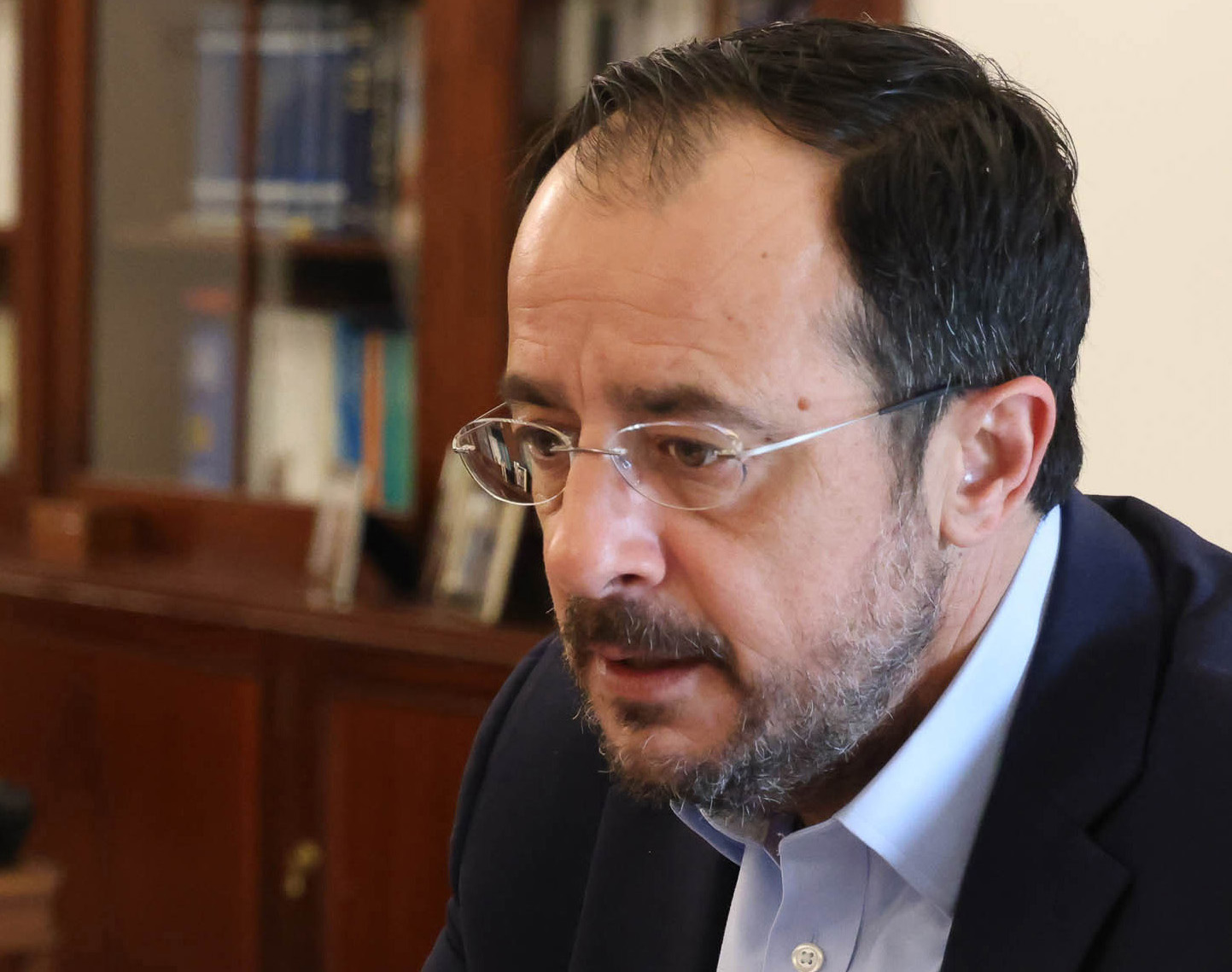President Nikos Christodoulides on Wednesday night gave a long, televised address in which he reviewed and appraised his second year in office, reassuring the public that he has acted with “a steady place and a clear plan” throughout.
“During the second year of our term, we achieved the implementation of 90 per cent of the flagship interventions which I had announced, as well as many other policies included in ministries’ and deputy ministries’ annual action plans,” he began.
He added that the policies his government has implemented “reflect our political philosophy – social liberalism – as well as our human-centric approach”.
The first object of focus was the economy, with Christodoulides saying Cyprus recorded “one of the highest rates of growth in the Eurozone” at 3.4 per cent of its gross domestic product last year.
He also made reference to the multiple ratings agencies which have upgraded Cyprus’ credit rating to an ‘A’ grade in recent months, describing those ratings as a “vote of confidence in our responsible economic policy” which “translates into positive results for people, households, and businesses”.
Additionally, he said Cyprus is “approaching the target” of reducing its rate of public debt to 60 per cent of its GDP and said the island’s unemployment rate of 4.9 per cent is the lowest it has been since 2008.
He said the island’s strong economy has allowed for “substantial and targeted social interventions”, including spending €760 million “to address the agrarian crisis” and €100m on “interventions for demographic policy”.
On demographic policy, he pointed out that his government has increased parental leave by a month, among other policies aimed at young families.
He also touched on plans for price controls, beginning with bottled water.
Moving on to the matter of education, he made reference to the government’s expansion of pre-primary education to include younger children, the creation of new technical schools, and the installation of air conditioning units at schools across the island.
He then briefly passed over the matter of health, saying his government has launched “projects worth €128m for the qualitative upgrade of health services and the radical improvement of infrastructure at public hospitals”, before turning to migration.
Arrivals of undocumented migrants, he said, have decreased by 64 per cent since 2022, with the rate of departures compared to arrivals rising from 43 per cent in 2022 to 179 per cent last year, meaning that almost twice as many undocumented migrants are leaving the island as arriving.
He added that the number of residents at the Pournara reception centre decreased by 82 per cent and said his government “intensified controls to combat undeclared and illegal work”.
He then went on to speak on the matter of the digital transition, saying it is “directly linked to increasing productivity, reducing bureaucracy, strengthening competitiveness and promoting transparency”.
This, he said, includes the creation of the fast-track planning application procedure and the creation of the “digital citizen” application.
He also spoke of the government’s plans to introduce automatic voter registration and to reduce the minimum voting age to 17 years old, as well as its “accountability website” called “ekfracy” and the “Elpis” application, designed to help victims of domestic violence contact the police.
Briefly pausing from the list of policies, he said “our political will to strengthen the country’s reputation and zero tolerance for corruption has also been clear”, pointing out the cooperation signed between Cyprus and the United States’ Federal Bureau of Investigation (FBI) to work to clear the island’s name.
He then moved on to the matter of energy, highlighting the government’s grant scheme for the creation of storage systems for renewable power and the plan to make the Tillyria village of Pyrgos a “model green community”.
He also made reference to agreements signed over natural gas and the commencement of drilling in Cyprus’ exclusive economic zone by American multinational corporation ExxonMobil and QatarEnergy, adding that “results … are expected in the coming days” with regard to this drilling expedition.
He then began to draw his speech to a close, touching on the Cyprus problem and international developments.
“From the first day I assumed my duties, my main goal and what I promised the Cypriot people is the resumption of substantive talks for the resolution of the Cyprus problem on the basis of the agreed framework.
“Our political will, which is recognised by everyone, and our coordinated efforts have managed to activate international interest, create conditions for mobility, and achieve a clear interconnection of relations between Europe and Turkey with developments in the Cyprus problem,” he said.
He said he will be travelling to next week’s enlarged meeting on the Cyprus problem in the Swiss city of Geneva “with all seriousness and with the sole aim of paving the way for the negotiations from where they were interrupted in the summer of 2017”.
“The current state of affairs cannot be the future of our country,” he added.
Summing up his two years in office so far, he said “we have proven that we do not hesitate to face serious and longstanding problems as well as the pathologies of decades gone by”.
“In a difficult and constantly changing international environment, we have faced challenges and seized opportunities. With a steady pace and with a clear plan, we are walking the path of responsibility and consistency with the sole aim of serving the Cypriot people, for the many, not the few,” he said.
He concluded, “together, we are changing Cyprus”.






Click here to change your cookie preferences